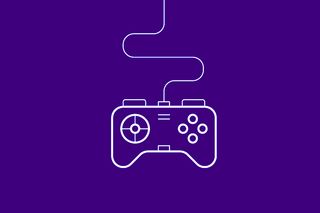
WHO Recognizes Excessive Digital Gaming as Psychological Disorder
Relax, your kid probably doesn’t have it.

In the Era of Screen Time, worrying over how much time kids spend playing digital games is a common concern for parents — especially considering how conflicting the research has been regarding the effects of video games. A new move by the World Health Organization to officially recognize ‘gaming disorder’ makes clear how much is too much.
The decision to include the condition in its 11th edition of International Classification of Diseases was made following exhaustive consultations with various experts and reviewing previous evidence, reports The Economic Times. The definition of the disorder is specific and narrow, meaning it’s unlikely most gamers, kids or adults, are addicted or suffering from a mental health condition. According to IDC-11, there are three major characteristics that define gaming disorder: prioritizing gaming over other daily activities and interests in life; an inability to control the need to play digital games, even when playing impacts real life negatively; and continuing or escalating gaming even as it interferes with eating, sleeping, work and social functions.
At this point, when playing digital games becomes a compulsion, and destructive behavior has occurred for at least a year, it becomes a disease, Dr. Shekhar Saxena, director of WHO’s department of mental health and substance abuse, told Times of India. Most of the 2.5 billion who play some form of digital game will never suffer from this disorder; gaming disorder only affects a small minority of people, he said.
In fact, the WHO’s move is somewhat controversial as some psychologist disagree with categorizing digital gaming of any amount as a standalone mental health diagnosis. They say excessive gaming is usually a manifestation of another mental health problem. “When anxiety and depression is dealt with, the gaming goes down significantly,” one clinician told CNN.
This official definition of gaming addiction by WHO gives psychologists a clear metric to diagnose uncontrollably unhealthy digital gaming in kids and adults, and offer treatment if needed. It gives parents a clear benchmark of when to seek help for kids. But it doesn’t change the fact that most of us, kids and adults alike, are playing games and visiting websites specifically designed to keep us coming back for more. For the majority of adolescents who spend long hours online, gaming or otherwise, parents’ attitudes toward online habits and interactions with kids offline may be the real determinant of what’s health and what’s not.
Related:
Related


Where’s the Female Libido Pill Now?
